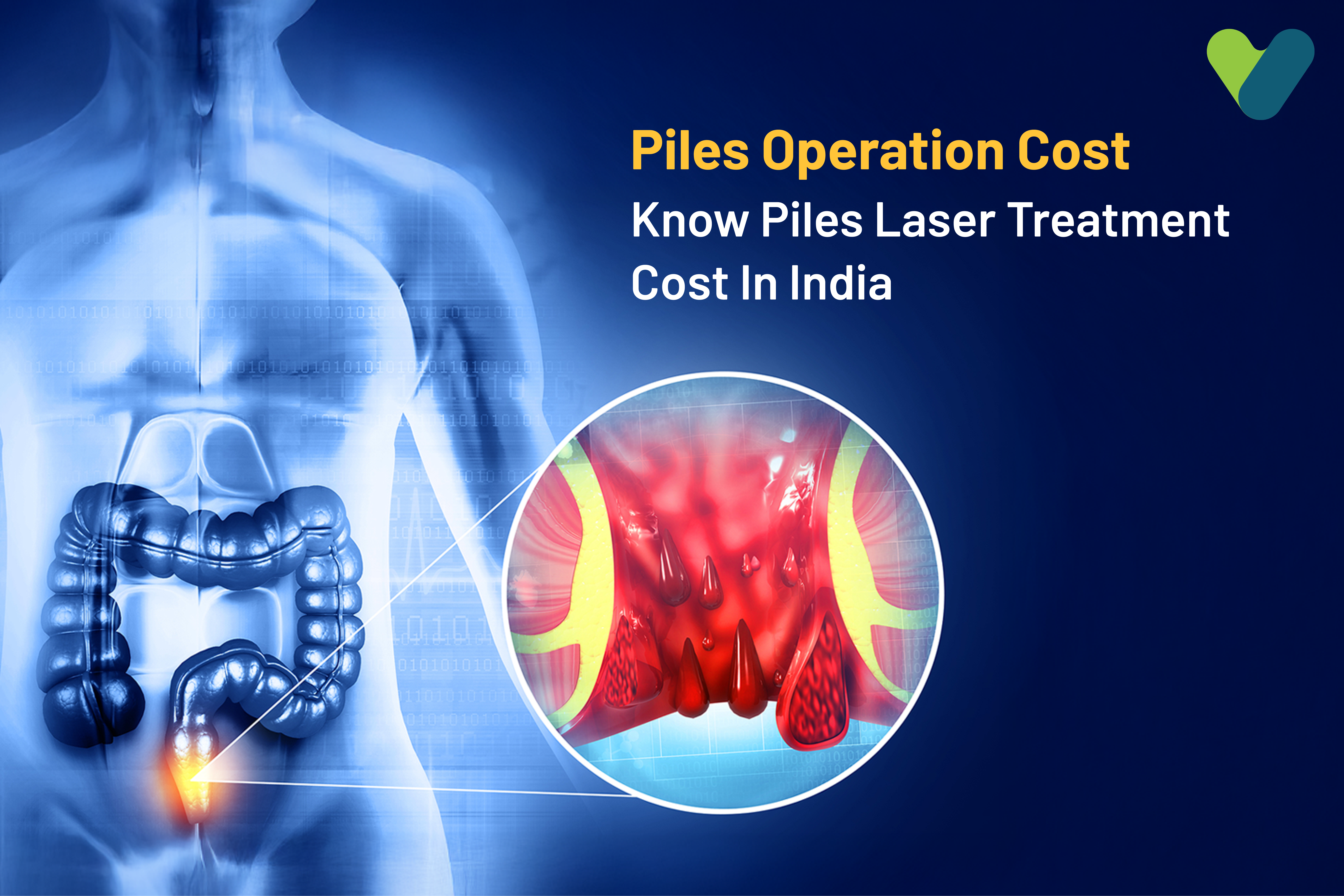Haemorrhoids, also known as piles, are a common but troublesome disease. Technology now allows doctors to perform laser surgeries without cutting any tissues—piles laser treatment—for this condition. You’ll learn about the surgery, tips to heal fast, and the factors influencing laser haemorrhoid surgery costs in India, which averages about INR 50,000 in cities like Delhi and Mumbai.
Piles and the types of piles
Haemorrhoids are a very common disease of the digestive system, and a lot of people develop them during some point in their lives irrespective of the gender. Some of the common causes of piles include chronic constipation, chronic diarrhoea, lifting heavy weights etc. In piles, the blood vessels in the anal region swell and become irritated, leading to haemorrhoids. In some cases, these haemorrhoids can grow out to block the rectum (muscular tube at the end of large intestines) and not allow stool to pass.Depending on their location, haemorrhoids are classified as internal haemorrhoids (occurring inside the rectum) and external haemorrhoids (occurring outside the rectum).
Also Read : Types of Piles
Piles treatment options
There are numerous treatment options available for piles, including home remedies, non-surgical methods, and surgical approaches. However, haemorrhoids usually go away on their own, but people should confirm the diagnosis with their doctor first as the symptoms of piles resemble those of other severe diseases such as colon cancer.The following treatment options are most common choices for people with piles:
- Rubber band litigation
- Sclerotherapy
- Laser treatment for piles
- Haemorrhoidectomy
- Haemorrhoid stapling
Laser treatment procedure
This is one of the most preferred treatment options for piles today as it is a non-invasive outpatient treatment, which means that it involves no cuts, and the patient may be able to go home the same day. The doctor will decide a mutually agreed date and time for the procedure. When the patient arrives at the hospital for the surgery, the medical staff will check the patient’s vitals and prepare them for the surgical procedure. The doctor will start with a local anaesthesia that will leave the patient conscious, but they won’t be able to feel any pain or discomfort. The surgery is performed using a pen-like tool that emits laser beams on the doctor’s commands. Using this tool, the doctor will burn the haemorrhoids, which will cause them to shrink and maybe fall off later. Ideally, there is no bleeding during the surgery, but the doctors will end the surgery only when they ensure the absence of bleeding. Afterwards, the doctor begins dressing the area with a cotton dressing pad—anal pack; this can be removed the next day by a medical staff or by patient at home. Also Read : Best Ointment for PilesThings to know about piles laser treatment
Knowing the following will help people better prepare for the surgery and recover fast:- The patients are not supposed to eat or drink anything at least 8 hours before the surgery.
- The patients should bring a responsible person they trust with them who can make important decisions for the patient in case of an emergency.
- Experiencing headaches on moving the head is a common side-effect of local anaesthesia; the patient should try to not move the head too much for about 24 hours after the surgery.
- Due to the effects of anaesthesia, the patient will not be able to feel anything in the lower half of their body for up to 4–6 hours after the procedure.
- The diet that starts from water and fruit juices will gradually be increased to solid food.
- The patients will likely receive a prescription for antibiotics and pain blockers after the surgery.
- The patients will be educated about sitz baths—sitting in a tub of warm water to ease the discomfort in your anal region.
- The staff will also provide information some Kegel exercises to strengthen the pelvic muscles.
- The patient should avoid activities such as driving, operating heavy machinery for up to 2 days after the surgery.
Benefits of laser treatment for piles
Piles laser treatment has numerous benefits, including:- As it is a non-invasive procedure, there is a very low risk of infection.
- The procedure is painless.
- There are none to minimal chances of post-surgical complications.
- The patient usually recovers quickly after the surgery.
- The procedure leaves no traces as there is no scar formation.
- There is none to minimal damage to surrounding tissues/areas.
Factors affecting laser piles surgery cost
The laser treatment for piles cost ranges from approximately INR 40,000 to 1,15,000 in India. Following are some of the key factors that affect piles laser treatment cost:- Doctor’s consultation fee Depending on the doctor chosen for treatment, the laser haemorrhoid surgery cost can be low or high. Specialists with more experience usually charge more than new doctors.
- Type of hospital Not every hospital will have the required equipment for performing piles laser surgery; naturally, multi-speciality hospitals will charge more than normal hospitals.
- Investigative and diagnostic tests Before any surgery the doctor orders a set of tests to check if the patient is fit enough for a surgery or not. The more past ailments a person has, the higher the number of tests (and the laser piles treatment cost) will be.
- Patient’s other ailments If a person has diseases, such as diabetes, cardiovascular diseases, AIDS, and/or HIV, laser treatment for piles price will accordingly increase.
